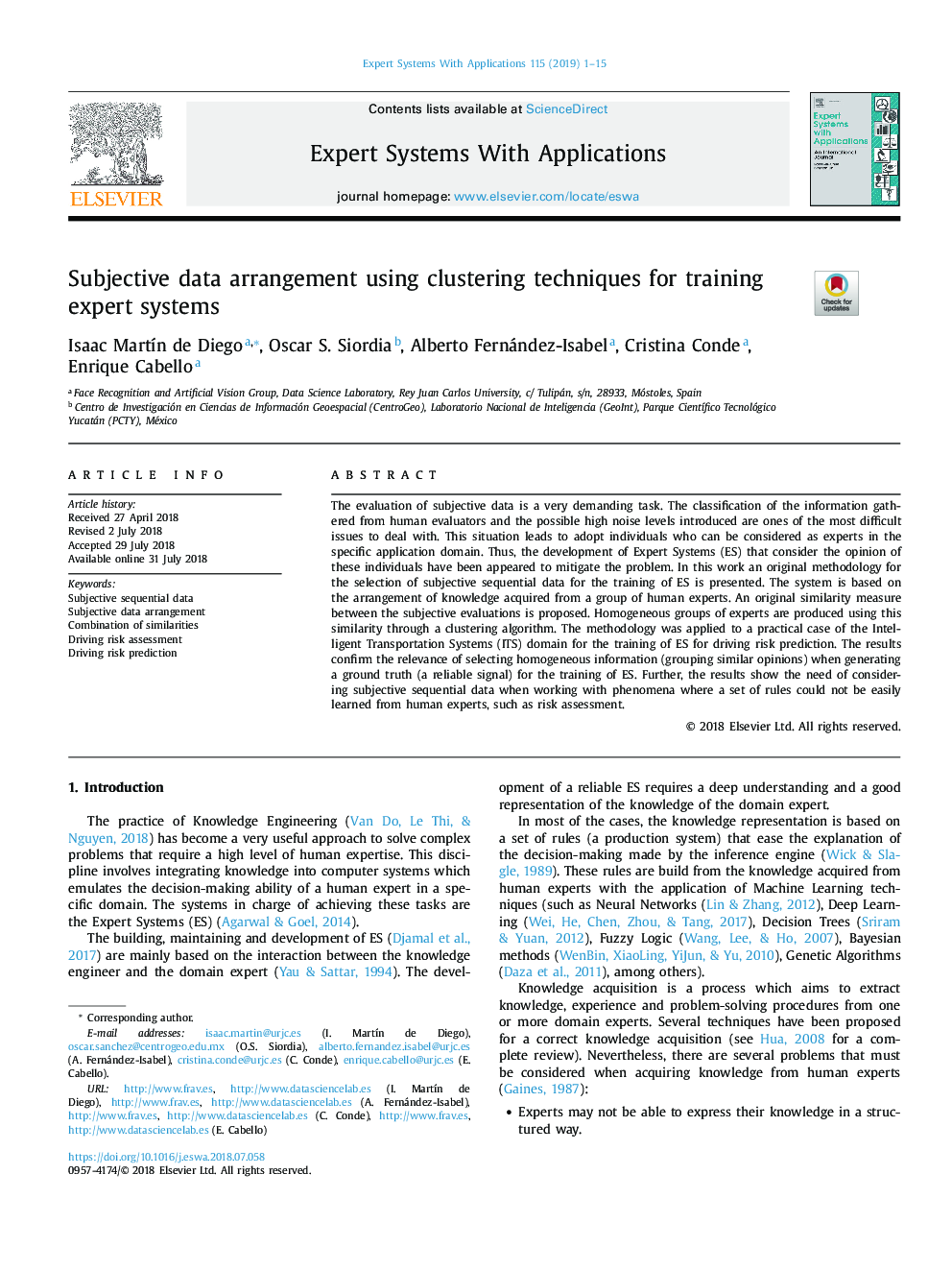| Article ID | Journal | Published Year | Pages | File Type |
|---|---|---|---|---|
| 6854636 | Expert Systems with Applications | 2019 | 15 Pages |
Abstract
The evaluation of subjective data is a very demanding task. The classification of the information gathered from human evaluators and the possible high noise levels introduced are ones of the most difficult issues to deal with. This situation leads to adopt individuals who can be considered as experts in the specific application domain. Thus, the development of Expert Systems (ES) that consider the opinion of these individuals have been appeared to mitigate the problem. In this work an original methodology for the selection of subjective sequential data for the training of ES is presented. The system is based on the arrangement of knowledge acquired from a group of human experts. An original similarity measure between the subjective evaluations is proposed. Homogeneous groups of experts are produced using this similarity through a clustering algorithm. The methodology was applied to a practical case of the Intelligent Transportation Systems (ITS) domain for the training of ES for driving risk prediction. The results confirm the relevance of selecting homogeneous information (grouping similar opinions) when generating a ground truth (a reliable signal) for the training of ES. Further, the results show the need of considering subjective sequential data when working with phenomena where a set of rules could not be easily learned from human experts, such as risk assessment.
Related Topics
Physical Sciences and Engineering
Computer Science
Artificial Intelligence
Authors
Isaac MartÃn de Diego, Oscar S. Siordia, Alberto Fernández-Isabel, Cristina Conde, Enrique Cabello,
